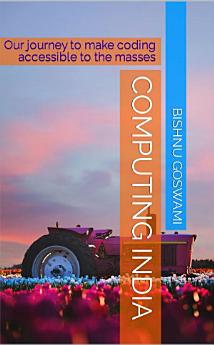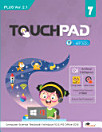Computing India: Our journey to make coding accessible to the masses
About this ebook
Hope you enjoy the read!
"But then something remarkable was happening elsewhere, and some family members were getting to be a part of it. The computer revolution was in full swing, and countries such as the US were importing talented people from all over the globe. My uncle was an excellent student, and he was employed overseas. After his return to home country, he gave us one of this older machines to keep, an Intel 80486 computer with a monochrome screen. That was my first computer and it played a pivotal role in making me interested in computing, work as a developer and publisher worldwide and then incorporate my observations into scientific research working as a Senior Fellow under the government. While we had an overall great surf with the tide, not everyone in the nation got to be a part of it.
People from the upper middle class and above, that too in the metros and tier 2 cities, started becoming familiar with computers and computing since the early 2000s. In the late 2000s to early 2010s, computer education became a part of some school curricula, but the quality of teaching remained problem. Today, India is known for an IT export hub, and has a large number of software programmers, researchers and users of computing products. However, a huge percentage of people in the country, even today, is out of the sphere of information technology and computing as active contributors and users (as opposed to simple passive consumption such as watching videos on a low cost smartphone). This should change.
In our approach outlined in this book, we tried to reach to more people and include them as active information technology users and coders. We tried to address the barriers of language and the complexity of coding, and learned a lot from our (yet) six year short journey. We hope to continue it and never feel its length until we have realised our goals to a large capacity. We hope to continue making progress.
About the author
Bishnu Goswami is an author, researcher, game/software developer and an avid bicyclist. He has published around four dozen books, with a few under a pseudoname. His genres include some nonfictional work; including techniques to crack difficult written and oral examinations, thinking holistically about science and its pedagogy and improving on existing de facto methods for the same.In the realm of software development, he has authored on the scripting and start-to-finish development of multi platform 2D games. Another example of his work involves the monetization best-practices in this area, using live-examples from his own individual projects from the past. One of his very recent projects involves an evolving element which can benefit the upcoming programmers in the field of inclusive development, which is also a part of his ongoing research work.In the very relevant field of inclusive development and global health, Goswami has worked with Rohin C, an American enthusiast, and jointly published a book on using Progressive Web Apps for Inclusive Development. He has previously worked on the use of these apps for newly industrialized countries, and those accounts are reflected in the book.He has also authored multiple books on some new variations of board games, including their analyses and feedback from the early-bird players, quite a few of them being acclaimed by the reviewers. He has also authored in abstract thinking puzzles, which has mostly been received very positively by readers of all age-groups.In addition to the recurring element of puzzle and their simplification in his work, Goswami has written on memoirs. These involve personal journeys to his cosy times with the rural-ferally juxtaposed indogs, an intelligent 'breed' of dogs that socializes itself out of nuclear-family dwellings, or the time he rode the last 'small' train to an ancient town of India. Some of his work here also dwells on the slightly risqué subject of personality profiling and stirring of the cultural potpourri.While working with the Society of Mental and Rhetorical Training, an institute created by the highest ranking civil officers of his home country, Goswami learned a few manners of the discipline; especially on the stressed importance of presenting oneself professionally, and with confidence. This is also noted down in one of his earlier works, and which was in part responsible for his invitation to various lectures throughout the country and internationally.Goswami has a master's degree in science and has also won multiple awards in national and international conferences. He has also contributed in Quora, a knowledge sharing website and maintains a blog and a software-developer website. In his free time, he likes to listen to classical music, watch birds and go on a tour of bicycling.








